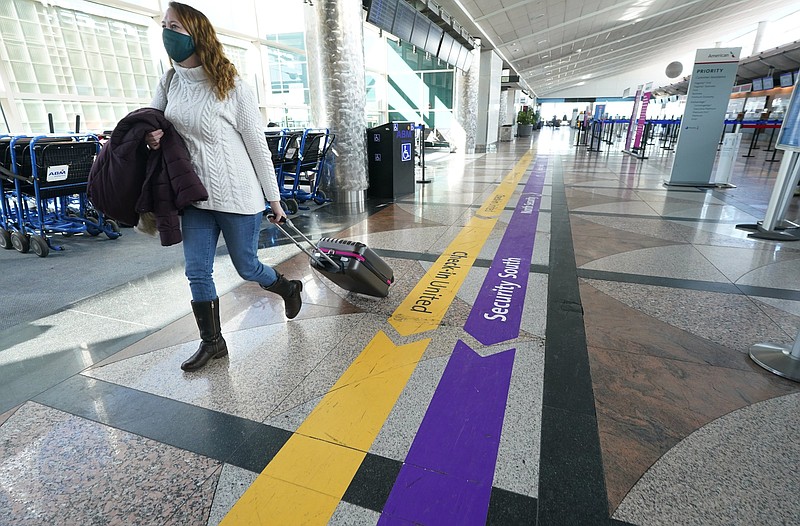Business is rebounding quickly across the country at hotels, restaurants and airlines, but millions of employees have been left behind as big companies seek to lock in pandemic changes to their models and slash labor costs in the future.
For a year, hotels, airlines, casinos and restaurants -- at least those that remained in business -- have made do with far fewer workers, often well under half of the number they employed before the pandemic. Customers have adjusted, with hotel guests checking themselves in on mobile apps and restaurant patrons content with picking up takeout.
Employment has begun to recover, with 13.8 million people employed in leisure and hospitality jobs this March, according to the Bureau of Labor Statistics. That's up from 8.7 million last April after mass layoffs took place.
But that's still 3 million jobs short of where the industry was before the pandemic, and it remains to be seen how many of the industry's still out-of-work employees will get a call back with business and international travel to the United States still nearly nonexistent.
Some large employers are signaling they plan to make do with fewer employees as they experiment with new business models that allow them to cut labor costs.
Hilton's chief executive said recently that he's focused on reducing labor costs at the chain's 6,400 hotels.
[CORONAVIRUS: Click here for our complete coverage » arkansasonline.com/coronavirus]
"The work we're doing right now in every one of our brands is about making them higher-margin businesses and creating more labor efficiencies," Hilton chief executive Chris Nassetta told investors in February.
The world's largest hotel chain, Marriott, is testing "contactless arrival kiosks" at hotels in New York, Louisiana and Miami, along with colossal vending machines to replace convenience stores.
Only time will tell what long-term effect such changes will have on jobs. Hilton spokesman Nigel Glennie said that "the one thing we know for sure is that Hilton is a business of people serving people." Marriott spokeswoman Connie Kim said the company's kiosks "will not impact staffing levels."
How many of these changes will become widespread is unclear. What's certain is that the $1 trillion tourism and travel industry, which was among the hardest hit of all sectors of the U.S. economy, is now seeing growth as housebound travelers, flush with savings, reemerge.
But enough companies have used the pandemic to refine technologies and practices in order to serve customers with fewer people that laid-off workers are wondering whether they'll ever get the call to come back.
Nely Reinante is a 45-year-old mother of three living in one of the nation's tourism hot spots, Hawaii. She has 10 years of experience as a housekeeper, including three years at a Hilton in Waikiki, where she worked until the pandemic arrived.
"Our guests pay hundreds of dollars every night they stay. They deserve to get the best experience and the best service," she said.
She is wondering how much service the hotel will be offering guests in the future, and whether it will need her again. When the pandemic arrived a year ago, the hotel sent her and her co-workers home on furlough. Since then, Hilton and other hotel chains have experimented with serving guests with dramatically fewer staff members, including housekeeping.
Some high-end hotels are cleaning rooms every other night, instead of nightly. Such a change could result in the hotel employing half the number of housekeeping staff members, jobs that are typically filled by women of color, including many immigrants. Nationally that would mean the permanent loss of millions of jobs.
Reinante said she thinks the hotel has hired less than half of the roughly 700 housekeeping staff members it used to have.
D. Taylor, president of the Unite Here union representing 300,000 hotel, casino and food service employees, said the hotel industry had been looking for a reason to cut labor costs before the pandemic arrived.
Taylor said 60% to 70% of his members remain unemployed. "Are some people getting called back? Sure. But what we are seeing a lot, especially in the hotel industry, is to have a largely jobless recovery."
